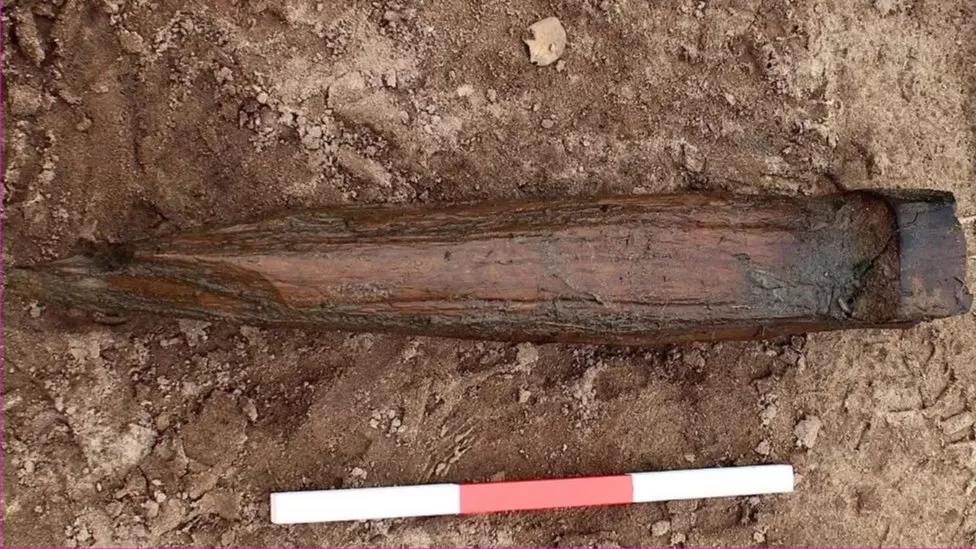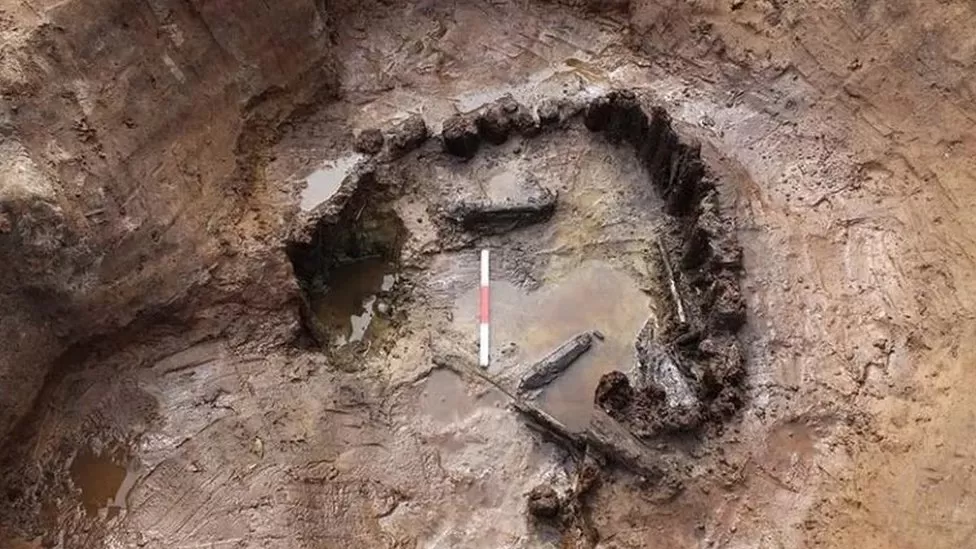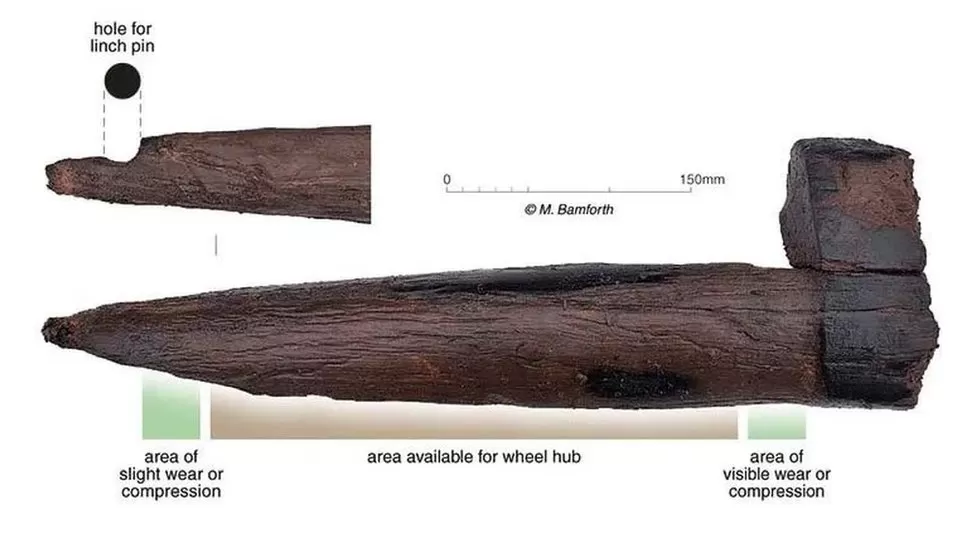Rare Iron Age Wooden Axle Discovered in England

Part of an “exceptionally rare” Iron Age wooden axle from a chariot or cart has been found in a waterlogged pit.
The fragment was uncovered in 2021 at Eastbridge, Suffolk, ahead of tree planting for the Sizewell C nuclear power station project.
Recent analysis revealed the hazel wood axle was made between 400BC and 100BC.
Archaeologist Chris Fern said it joins a handful of finds “from British later prehistory, such as the axle found at Flag Fen, Peterborough”.

The dig unearthed two Iron Age pits, which experts believe were most likely used as watering holes for livestock.
As they were waterlogged, they provided “ideal preservation conditions for wood”, said Mr Fern, a Cotswold Archaeology post-excavation manager.
The base of the axle had been broken, burned and reused and was found with charred boards, which might also have come from the same chariot.
Mr Fern said: “Most of the spindle – for the wheel hub – survives, as well as part of the rectangular axle-bed which would have been secured to the underside of the cart or chariot.”

The fragment has just been identified through analysis by dendrochronologist Michael Bamforth, a research associate at the University of York.
The axle had been repurposed in ancient times to prevent the collapse of the waterhole into the site’s sandy soil, Mr Fern said.
He added the axle” is an “exceptionally rare find”, which can “be viewed in the context of the famous chariot burials of the Iron Age in Britain, such as those from Wetwang, East Riding of Yorkshire”.